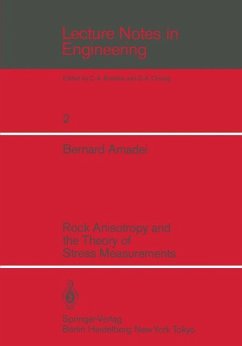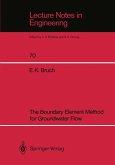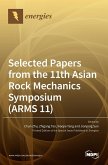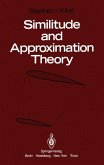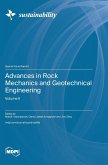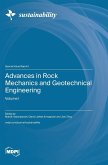Any undisturbed rock mass is subject to natural stresses inclu ding gravitational stresses due to the mass of the overburden and possibly tectonic stresses due to the straining of the earth's crust and remanent stresses due to past tectonism. Knowledge of the in situ stress field must be integrated into any rock engineering design along with general rock mass characteristics such as de for mability, strength, permeability and time dependent behavior. For example, the choice of optimum orientation and shape of deep underground caverns or complex underground works will be controlled by the orientation and the magnitude of the in situ stress @ield if it is necessary to minimize stress concentration problems. Long term variation of the in situ stress field may also help to evaluate the potential hazard of earthquake occurences. The magnitude and orientation of the stress field ata point within a rock mass can be measured but there is no known method by which the state of stress at a point can be accurately determined by instruments located remotely. In general, measurements are made inside boreholes, on outcrops or on the internal surfaces of under ground cavities. Most of the measuring techniques intentionally disturb the state of stress in the rock and then measure consequent strains and displacements. Measured strains or displacements are then related to the stresses through assumptions of material behavior. A common procedure is to assume that the rock mass is linearly elastic, isotropic, continuous and homogeneous.
Hinweis: Dieser Artikel kann nur an eine deutsche Lieferadresse ausgeliefert werden.
Hinweis: Dieser Artikel kann nur an eine deutsche Lieferadresse ausgeliefert werden.

